How To Distress Painted Furniture Using Vaseline
You can distress painted furniture using Vaseline Petroleum Jelly. Petroleum jelly is a paint resist meaning the paint will not adhere to any area covered with Vaseline. This is an easy technique for layering paint.
Distress Painted Furniture Using Vaseline
I promised you guys step by step details on the cedar chest I painted last week. The layered paints are red and turquoise.
I first posted this project in 2013 and have used the Vaseline distress technique many times since. I’m taking time off from projects while I spend time in Arkansas with family. In the old days my photographs were not the best so keep that in mind while reading the post. I share the step by step paint and distress process and I have a video for you too.
This is the cedar chest after it was painted, distressed, and stenciled. I took the photos in the workshop and the lighting was really bad. The chest is a beauty. I wish you could see it in person.
I paid $15.00 for the cedar chest with broken top. The JTS made the repairs for me. I could see potential in the cedar chest despite the flaws. It was a bit discolored inside but a little cleaning with Simple Green took care of that. Don’t you just love the smell of cedar!
Step 1. Paint furniture desired color using paint of choice.
I didn’t have the perfect paint color on hand and I combined several colors from my paint stash to get this beautiful blue.
I hate to go and buy more paint if I can work with what I have on hand. You may have read that you can’t mix different sheens of paint together but I do.
Step 2. When paint is dry wipe Vaseline lightly over selected areas of the painted surface.
Vaseline paint resist
The technique of using Vaseline (petroleum jelly) as a paint resist has been around for a while. I’ve used this process numerous times with beautiful results. I rubbed a little Vaseline on the cedar chest in strategic areas after the coat of turquoise paint was dry. I wore gloves so my hands wouldn’t be icky, and I didn’t put the Vaseline on thick or all over the cedar chest, just little swipes here and there.
Step 3. Brush on second coat of paint in a contrasting color to first layer.
I used a can of oops paint from Wal-Mart for the top coat. This paint has been sitting on my shelf for over a year.
It’s a beautiful Cherry Red and I fell in love with it at first sight. Just haven’t had the perfect project until now.
After I rubbed the chest down with Vaseline (sounds a little strange when I put it that way), I put a coat of the Cherry Red on the bottom of the chest. The top I intended to leave turquoise, no red topcoat.
Step 4. Let dry then immediately wipe off top layer of paint with a rag.
When the red paint was dry I took a damp rag and wiped it down. The areas where the Vaseline was applied rubbed off pretty easily. At this point I decided to go ahead and put Vaseline on the top and then paint it red too. I wasn’t loving the contrast between the top and the body of the cedar chest. It’s okay to change furniture makeover plans mid-stream. I do it all the time. If the plan isn’t working, move on.
I went through the same process with the top…..damp rag…..rub all over…..paint comes off. I use a damp rag instead of sandpaper because I don’t want the scratched paint look.
Step 5. Add A Stenciled Detail
Next for the “over the top” touch, a Martha Stewart stencil (similar stencils on Amazon). I selected specific parts of the stencil and arranged them in a decorative pattern. I used the same turquoise paint for the stencil. Do you know the secret to a perfect stenciled design? Use a very dry brush. Wipe off most of the paint then use the brush on the stencil.
I didn’t want a perfect look so I did a few off center curlicues at the bottom of the design and then I took a sanding block and lightly sanded the whole chest, stencil included, just very lightly so the paint wouldn’t look scratched. To protect the finish and for a little extra pow, I applied two coats of Minwax Poly Acrylic Latex Gloss Sealer.
The turquoise and red really pop against each other. The turquoise doesn’t show as well in the photos. It’s a little more vibrant than its showing here.
Try A Different Distressing Techinque
I painted another chest with a similar look using the wet distress technique. I wanted to share just a few of those photos with you so you can see how you can use the same paint colors but get a different look.
This chest has the red paint as the base color and the blue on the top. I actually think I like the blue as the top color the best.
I purchased the cedar chest at the Nashville Flea Market. The top was broken completely down the middle. I probably overpaid for it, but I liked the legs and the brass details.
I planned to just paint her red, apply some dark wax, and ta-dah, done. But it was a little too plain for me.
I tried a different distressing technique this time. I used some of my husbands wet cleaning towels, you know the kind that comes in a canister and you open the tab on the top and pull them out one at a time. Some people use baby wipes but they were in the house and these were handier.
I don’t think this is what is known as “wet sanding” so I’m calling it “wet cloth distressing” . When the top coat of turquoise was dry I rubbed with the wet towel in strategic places. Sometimes I rubbed pretty hard. I think I let the paint dry too long. Rub the paint off until you get the look you want.
Next I applied a light coat of Howards Wax in Walnut. Gives the chest an aged look. I like the wet cloth distressing, not as messy, but I think it takes longer than using the electric sander.
Read my tips and tricks for distressing furniture here… What You Should Know About Distressing Painted Furniture And Home Decor
Video tutorial below on how to use the Vaseline distress technique on a Lane cedar chest……
Video Tutorial: How To Distress Painted Furniture Using Vaseline
If you liked this project you will love this project using Vaseline To Distress Paint. ..Old Sewing Machine Cabinet Makeover: Turquoise and Green Paint Layering Using Vaseline
Favorite DIY Tools and Paints:
Beyond Paint for Furniture
FrogTape Painters Tape
Howard’s Restore-a-Finish
Rustoleum Heirloom White Spray Paint
Rustoleum Metallic Copper Spray Paint
This is a safety alert from Lane…..Since many of our cedar chest products have withstood the test of time and have been in homes for decades, there have been cases where children have climbed inside chests with old style latching mechanisms and locked themselves in, and there have been incidences of suffocation inside chests. As a result of this important and urgent safety concern, Lane has launched numerous successful programs since 1987, all concentrating on lock replacement. However, based on our best records, there are still an estimated 6 million chests owned by consumers that may require the new lock upgrade. Please click here for more information
If you have any questions about this process just email me. My email is kathy@petticoatjunktion.com. As always, thanks for being here and have a great day, Kathy
Author: Kathy Owen
Kathy Owen is the founder of the home decor blog Petticoat Junktion where she shares tutorials on painting furniture and upcycling thrifty finds into unique home décor. Her DIY projects have been featured on the Home Depot Blog, Plaid Crafts, Behr Designer Series, and in numerous magazines. Kathy’s newest website is HappyHomeDIY.com

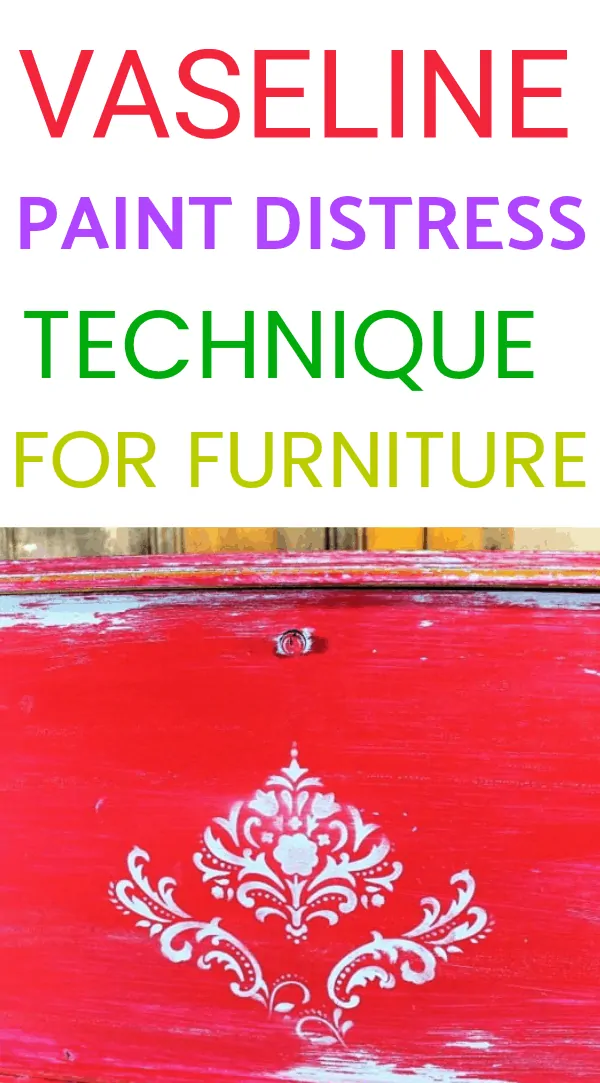
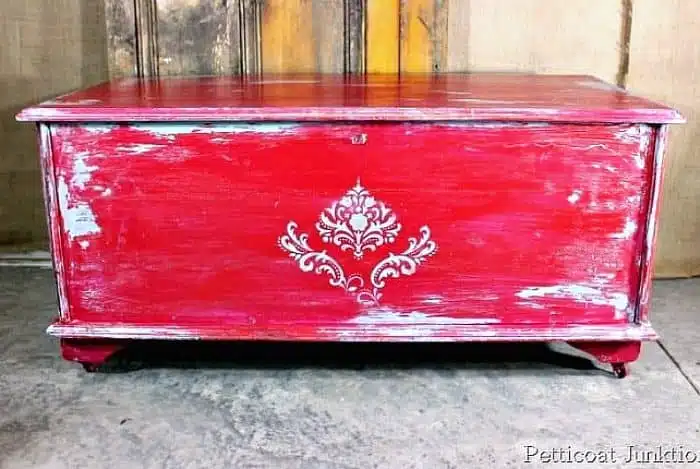
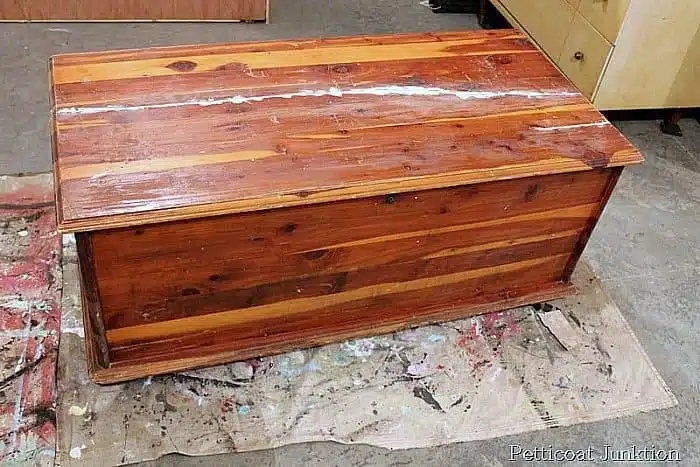
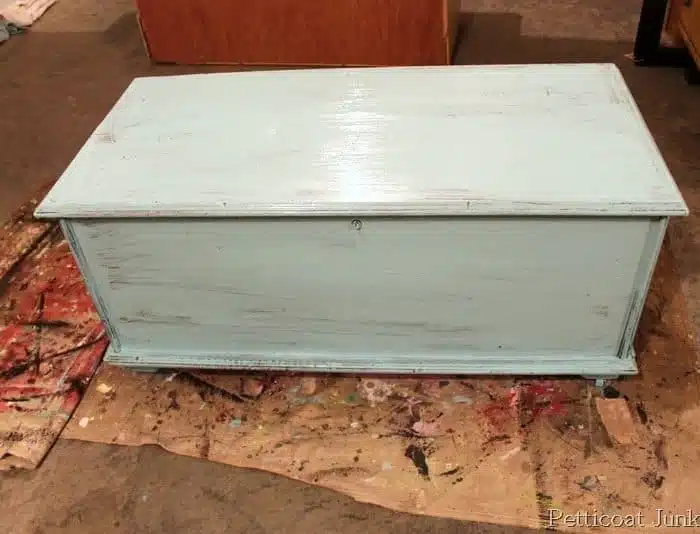
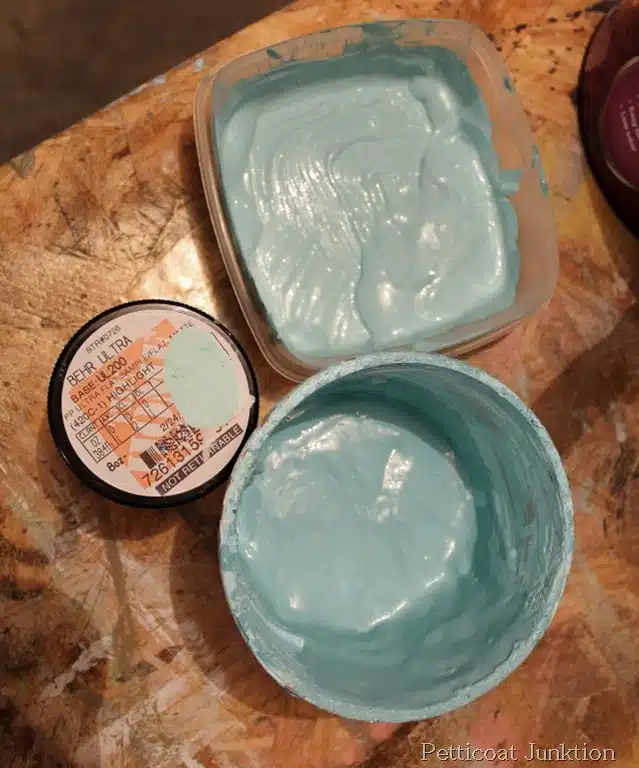
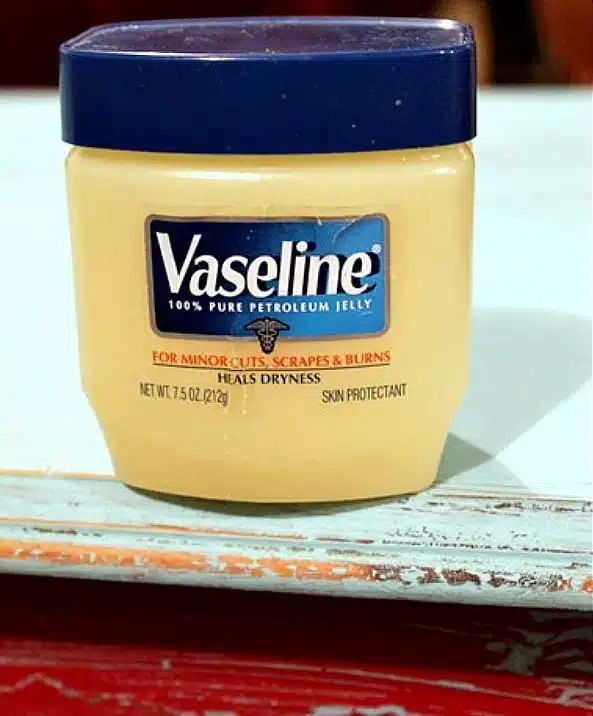
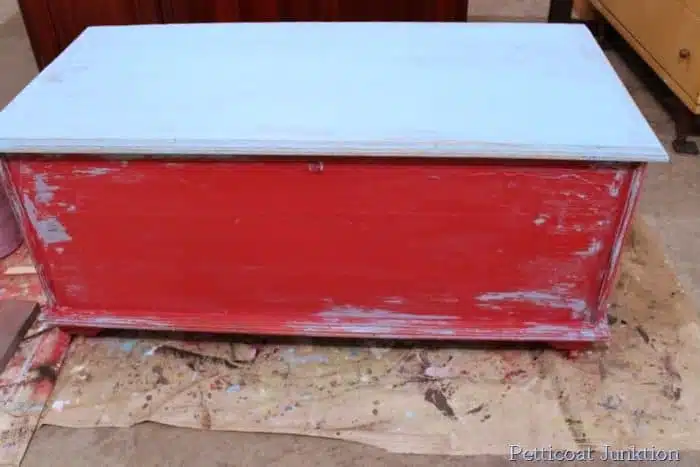
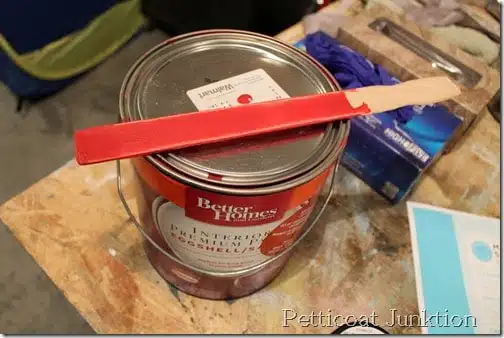
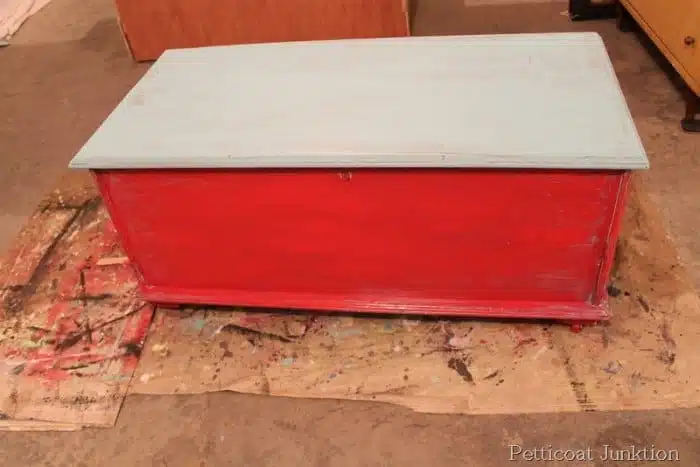
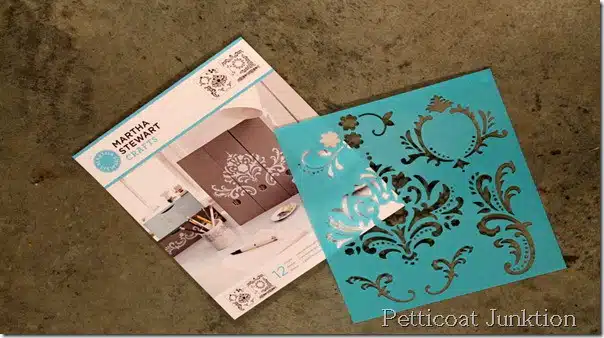
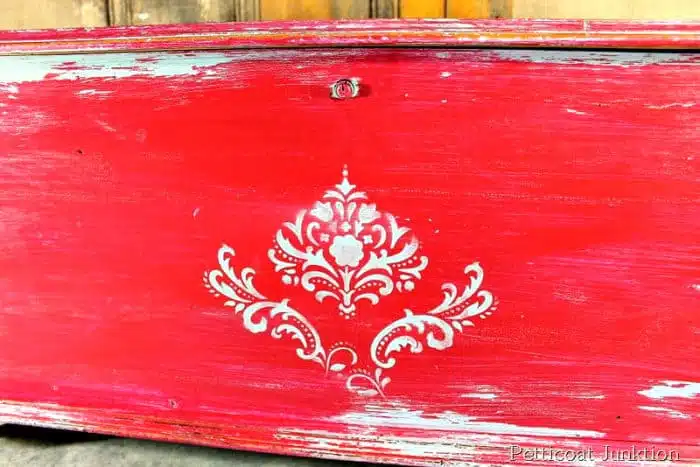
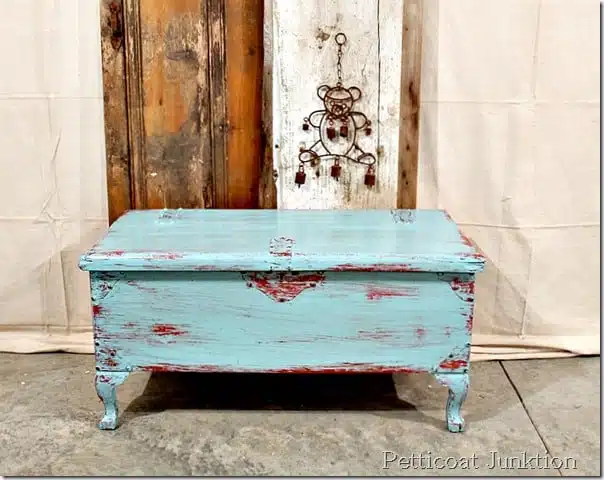
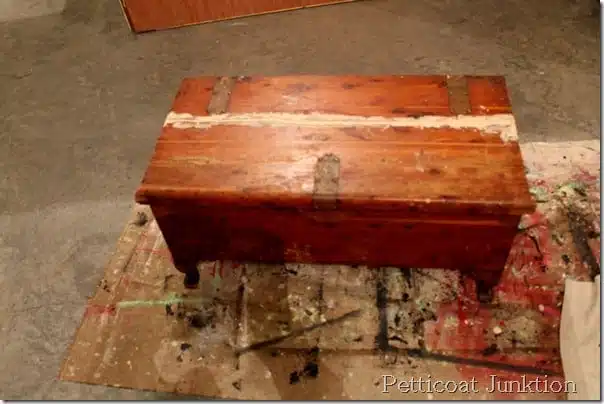
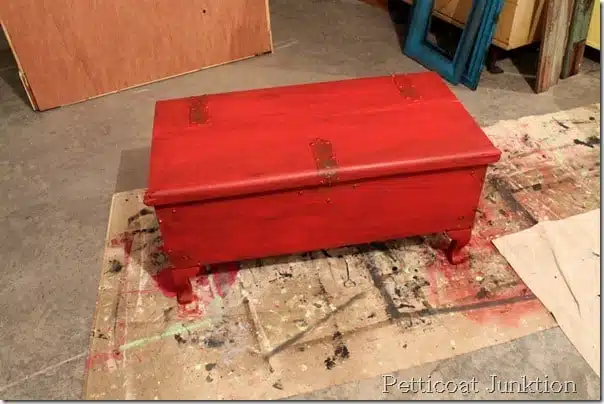
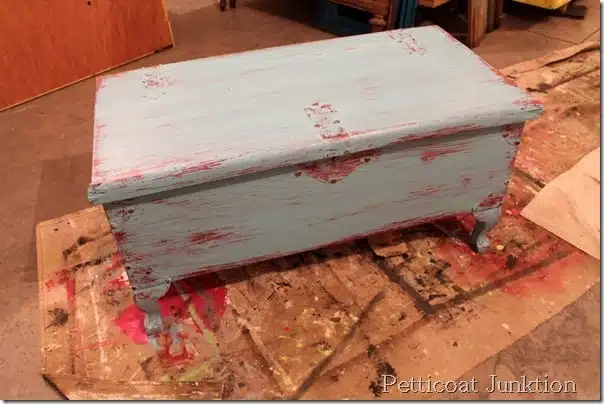
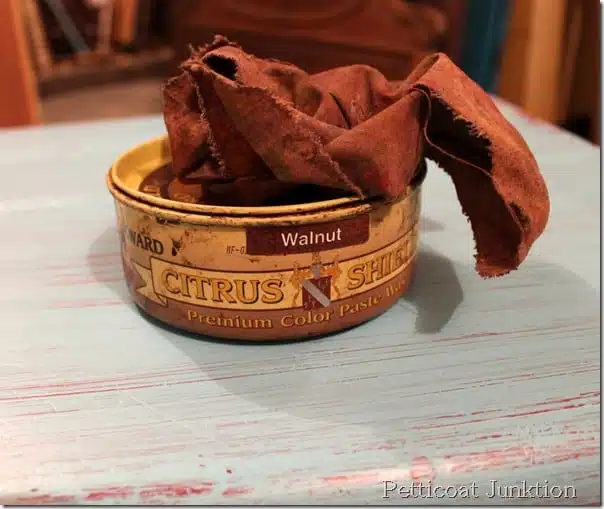
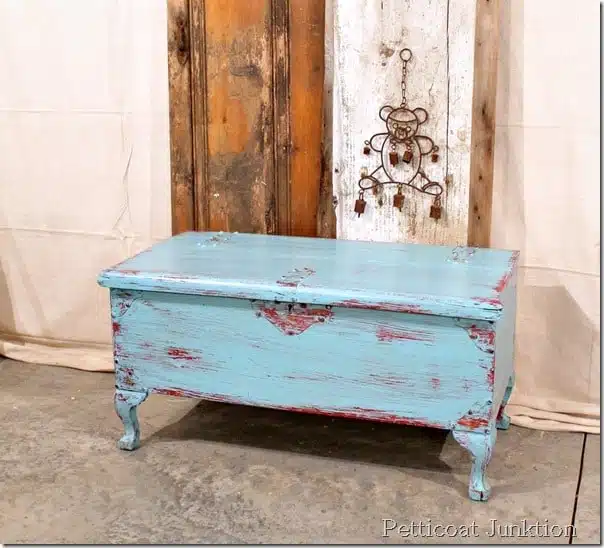

I didn’t know about using Vaseline. Thank you for sharing this tip. Merry Christmas.
Does the vaseline get onto your brush? Love this bold color!